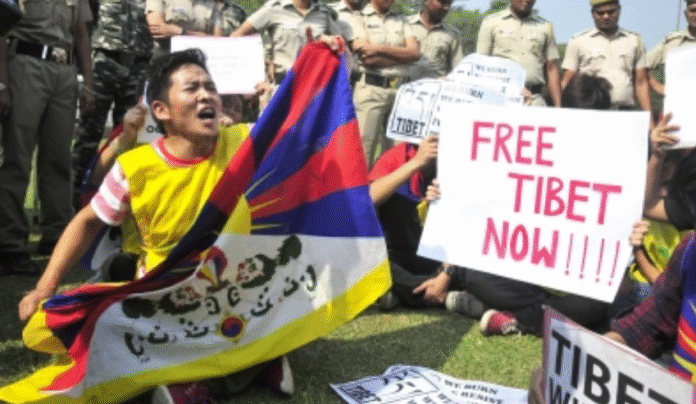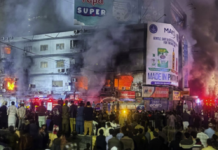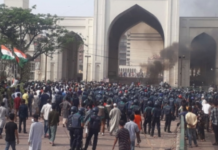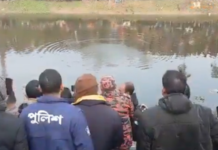BEIJING– Seventy-five years after Chinese troops stormed into Tibet, the region remains under siege but spiritually unbroken, according to a new report released Wednesday by the Tibet Rights Collective.
The advocacy group marked the anniversary of October 7, 1950, when an estimated 80,000 soldiers from China’s People’s Liberation Army invaded Tibet’s eastern province of Kham, overwhelming a Tibetan force of about 8,000. “Tibet’s mountains were shaken when eighty thousand Chinese troops descended upon the plateau like a dark wave,” the report stated, describing it as “the day an ancient, peaceful civilization was invaded, silenced, and scarred.”
A year later, Tibet’s leaders signed the Seventeen-Point Agreement “under duress,” which Beijing claimed would guarantee Tibet’s autonomy and preserve its religion and culture. “China promised peace — and delivered chains,” the report said. “In the decades that followed, over 6,000 monasteries were destroyed, scriptures burned, monks imprisoned, and the sacred turned to ash. The world stayed silent — but the mountains remembered.”
The collective said nearly one million Tibetan children are now kept in Chinese state-run boarding schools far from their families, monasteries, and homeland. “In these sterile classrooms, Mandarin replaced Tibetan, and party slogans replaced compassion,” the report stated. “Children grow up unable to converse with their grandparents, estranged from their own identity.”
Citing its 2025 study titled “Weaponizing Big Data: Decoding China’s Digital Surveillance in Tibet,” the group detailed how Beijing’s predictive policing systems use biometric data, DNA, and facial recognition to monitor and suppress dissent. “The United Nations has called it what it is — cultural erasure,” the report said. “This is not education; it is assimilation. It is the slow erasure of a civilization, one child at a time.”
The report also warned that the militarization and industrial exploitation of the Tibetan Plateau—often called the “Third Pole”—are accelerating ecological destruction. It said China’s dam projects on the Yarlung Tsangpo (Brahmaputra) River threaten the water security of millions across South and Southeast Asia.
“From India to Europe to the United States, the Tibetan diaspora continues to remind the world: you can occupy a country, but not its conscience,” the report concluded. “Seventy-five years after the invasion, Tibet remains under siege but unbroken. Beijing controls the land, but the soul of Tibet belongs to those who refuse to forget.” (Source: IANS)














